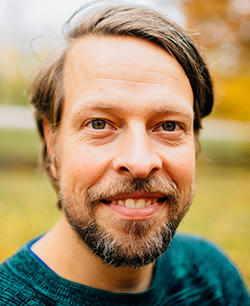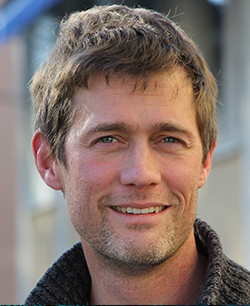Referens: Forskning om undervisning och lärande, vol 9, nr 3, s. 6-27
Författare:
Simon Wessbo,
Ola Uhrqvist,
,
Publiceringsdatum: 2021-12-16
Den här artikeln visar på hur arbete med berättelser inom ramen för vad vi kallar
Bildning för hållbar utveckling, kan ge svenskämnet en mer framträdande roll i ämnesövergripande undervisning. Första delen av artikeln visar hur det välkända men samtidigt mångtydiga begreppet bildning kan ha stora likheter med grundtankar i det framväxande fältet Lärande för hållbar utveckling. Artikeln argumenterar för hur en sammanslagning gör kärnan i Lärande för hållbar utveckling synlig och relevant för bredare lärargrupper. Samtidigt aktualiseras innehållet i bildning i ljuset av människans nya roll och ansvar i den antropocena epoken. Vi menar att bildning för hållbar utveckling karaktäriseras av ledorden komplexitet, öppenhet, meningsskapande och engagemang. Den andra halvan av artikeln utmanar och konkretiserar detta föreslagna begrepp med hjälp av tre exempel där berättelser och berättande står i centrum.
av
Simon Wessbo & Ola Uhrqvist
Nyckelord: berättande, berättelse, bildning, bildning för hållbar utveckling, lärande för hållbar utveckling, svenskämnet
Bildung for Sustainable Development - and the potential for the teaching of Swedish
Abstract
This article shows how stories and storytelling can be used within the framework of what we call Bildung for Sustainable Development. This concept may contribute to the school subject of Swedish by providing it with a more prominent role in interdisciplinary teaching. The first part of the article shows how the well-known and ambiguous concept of Bildung has several similarities with basic ideas in the emerging field of Education for Sustainable Development. The article argues for the benefits of these concepts in making the core of Learning for Sustainable Development visible and relevant to a wider spectrum of teachers. At the same time, the content of Bildung is brought to the fore in the light of the new role of humankind and our responsibilities in the Anthropocene era. We believe that Bildung for Sustainable Development is characterized by complexity, openness, meaning-making and commitment. The second half of the article challenges and concretizes this proposed concept with the help of three examples in which stories and narration are considered.
Keywords: Education for sustainable development, Bildung, Storytelling, Stories, The teaching of Swedish
Corresponding author: Simon Wessbo / simon.wessbo@liu.se

